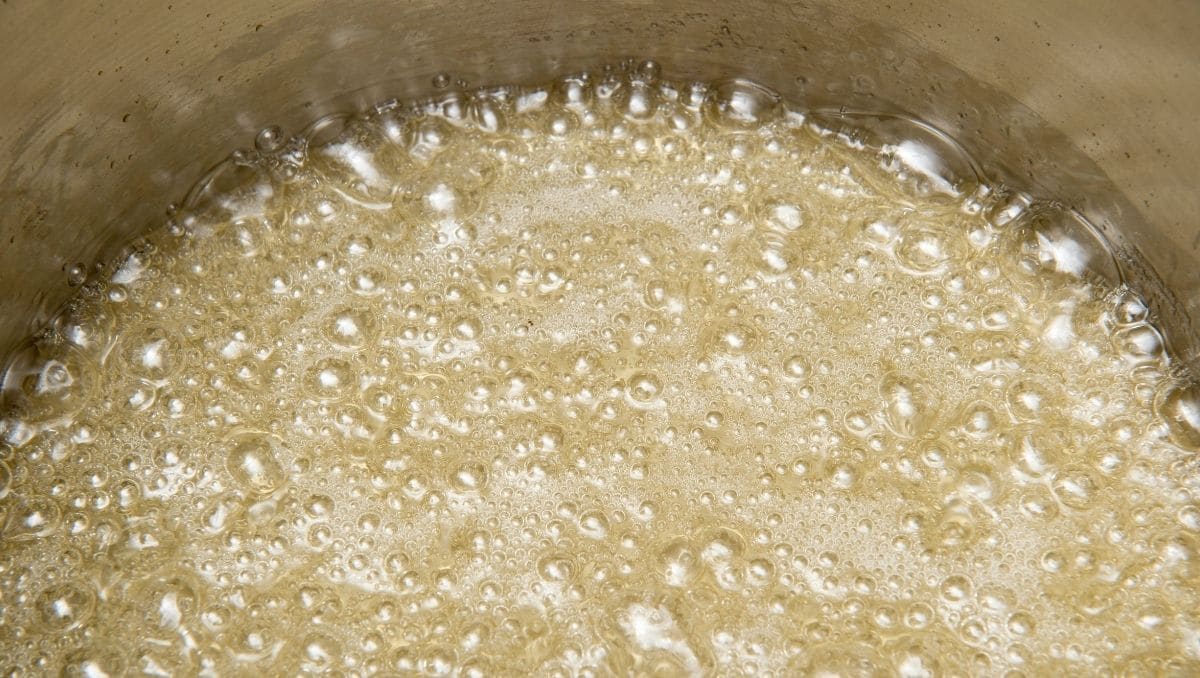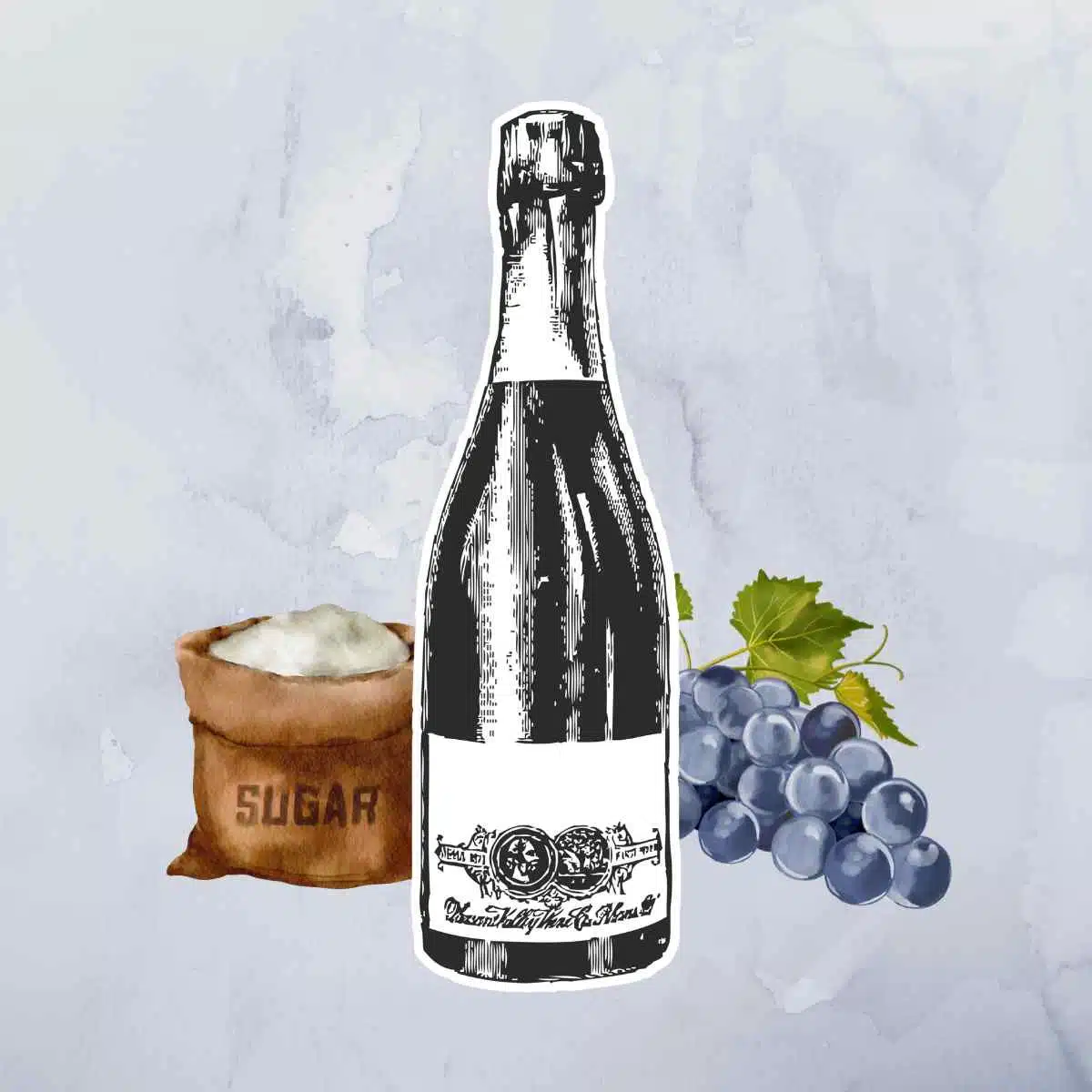Using Prosecco in cocktails is not a new thing in mixology. There are plenty of classic cocktail recipes that include Italian sparkling wine, like the Bellini, Barracuda, or Spritz cocktails.
However, Prosecco syrup is quite a new way to bring the taste of bubbly into drinks. What started as an experiment to make sour versions of classics like the Aperol Spritz grew into a hip trend in craft cocktail bars.
What makes this even better is that you can make use of an opened bottle of Prosecco that's been in your fridge a little too long and fallen flat. So, it's also a sustainable syrup option.
Read on to find out how to make the perfect Prosecco simple syrup and how you can use it in cocktails.
Jump to Recipe | Ingredients | How to make it | Variations | FAQs
Ingredients
To make this syrup, you only need three ingredients:
- Prosecco
- Caster Sugar
- fresh lemon juice
I recommend caster sugar for this syrup because darker, less refined options can overpower the delicate taste of Prosecco. - I once tried Demerara, but it was nowhere near as good as the version with regular caster sugar.
Now, the star of the show, Prosecco. Usually, in cocktails, it is recommendable to go for extra dry or dry sparkling wine, as the drink turns out too sweet and unbalanced otherwise. Also, you want a nice effervescence for your drinks not to fall flat.
With this recipe, it is different. It won't have bubbles, and it will be sweet anyway. So you can use an opened bottle that has lost some or all of its fizz.
How to make Prosecco Syrup
The steps are similar to making regular simple syrup:
Step 1: you need to combine all ingredients in a small saucepan. For that, you first pour in the sparkling wine, then add the sugar and the freshly squeezed lemon juice.
Step 2: Turn your stove to medium heat and stir slowly while your syrup mixture warms up. Once the mix starts boiling, turn down the heat a bit and keep stirring until the sugar is completely dissolved.
Step 3: Now, remove your syrup from the heat and let it cool down. Don't worry if you feel it is still a little too runny. It will get thicker while cooling down.
Step 4: Once your syrup is cold, you can use a fine sieve and strain it into a clean, sealable bottle. Stored in the fridge, your Prosecco syrup will last a minimum of four weeks.
Variations
We like to use Prosecco for our recipe because it has a relatively fruity taste and is affordable. However, you can basically substitute the Italian Bubbly with any other type of sparkling wine. From Spanish Cava to luxurious Champagne from France, everything works.
Champagne Syrup certainly is a more luxurious and decadent version. However, I find it a waste of money. - In general, since Champagne is a lot more expensive, but also because it lacks the fruity notes that make this syrup great.
More syrups for your cocktails
- Pink Dragonfruit syrup
- Butterfly Pea Flower syrup
- Pineapple syrup
- Banana syrup
- Demerara syrup
- Chamomile cordial

Equipment
- 1 Lemon squeezer
Ingredients
- 1.5 cups Prosecco
- 1.5 cups Caster sugar
- 1 tbsp Lemon juice
Instructions
- Add all ingredients into a small saucepan. Turn heat to medium and gently stir the mix.
- When the mix is about to start boiling, reduce heat. Keep stirring until sugar completely dissolves.
- Remove from heat and let the syrup cool down to room temperature.
- Strain and bottle the syrup and store it in the fridge. Use up within four weeks.
Frequently Asked Questions
Our Prosecco simple syrup recipe uses equal parts of sugar and Prosecco. Meaning, for 1.5 cups of Prosecco, you should use 1.5 cups of caster sugar.
A prosecco syrup made of Brut Prosecco contains 129 calories per oz, most of which come from sugar.


Is this syrup considered non alcoholic ?
Hi Tina,
This one is not considered non-alcoholic. To completely remove the alcohol in the syrup you would need to "cook" the mix for a lot longer. If you need a non-alcoholic version, the safest way would be to use a non-alcoholic Prosecco.
Hope that helps,
Cheers